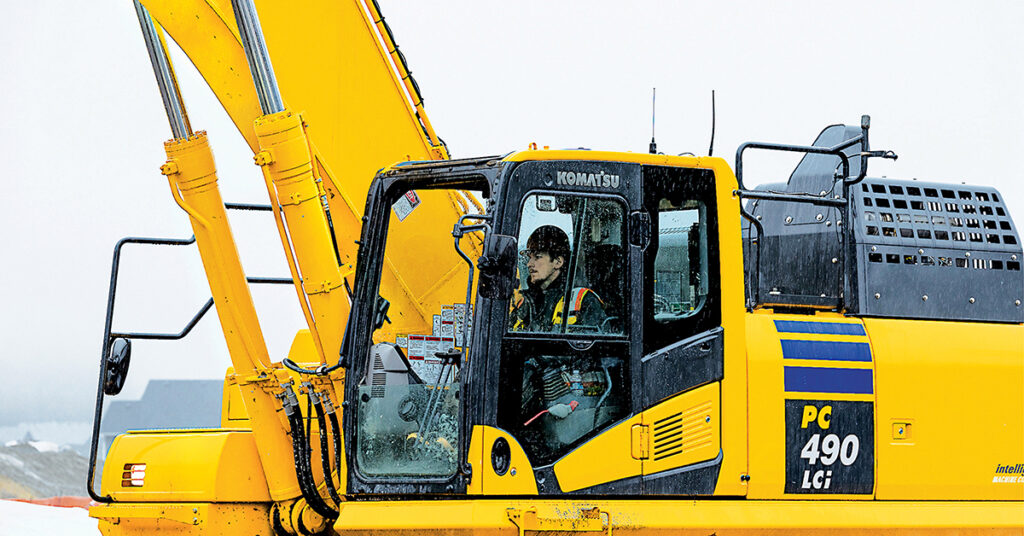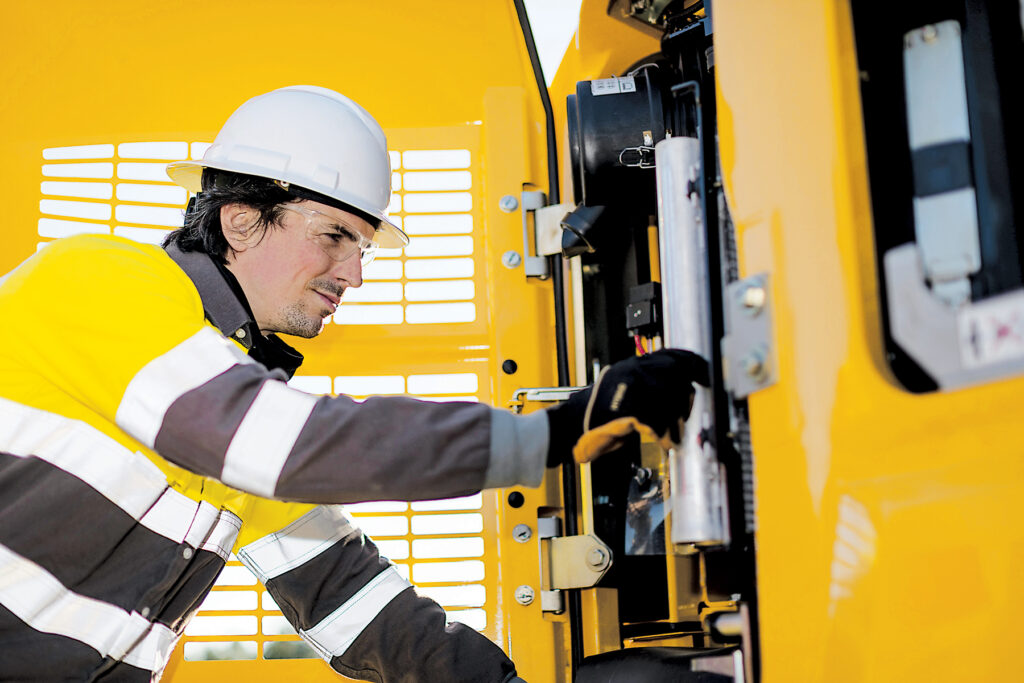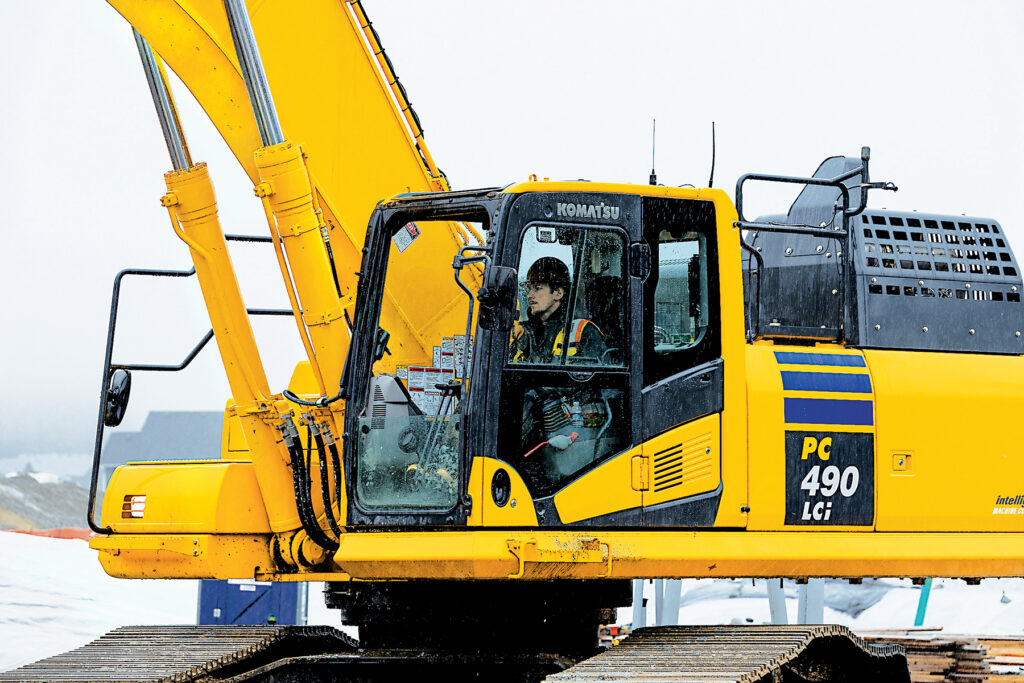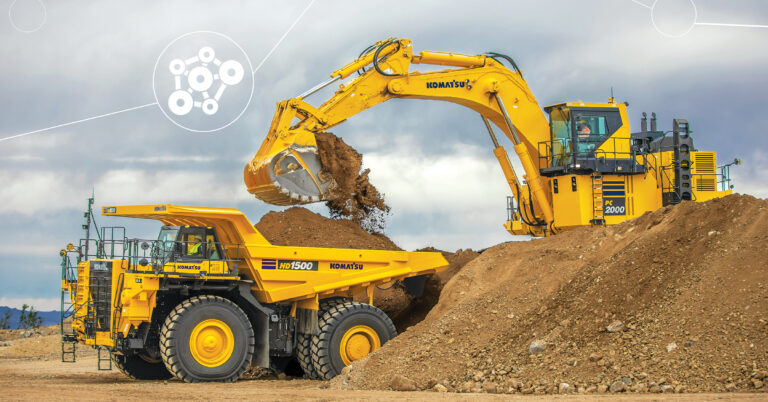
Are you prepared for low temperatures? 5 Tips on how to winterize your excavators
No matter where you operate, cold weather could potentially affect your job sites. Preparation ensures your excavators are protected, so they can continue to give you good production or are properly stored against the elements.
1. Fluids are the lifeblood. As temperatures drop, switching to a winter-blended diesel fuel helps protect your engine and its components. Traditional diesel tends to gel and develop condensation in colder temperatures and can freeze if there is too much water in it. High water content can also cause filters to freeze, expand and burst. Also, be sure to drain off fuel tank water and sediment.
Newer machines that use diesel exhaust fluid (DEF) need special attention, whether you’re using them or storing them long term because DEF freezes below 32 degrees Fahrenheit. Before shutting down for the day — or for months — it’s essential the automatic DEF line is purged to ensure that the lines are empty. This helps prevent expansion that could damage system components.
All fluid levels should be checked consistently to ensure they are at proper levels. It’s recommended that you use a low-viscosity oil and coolant with a freeze level protection rating that won’t freeze and cause major damage to the engine or other systems.
A block heater may be another consideration during overnight parking.

2. Keep batteries charged. Cold weather stresses batteries, and they should be inspected for damage prior to winter usage and replaced, if necessary. If you plan to use your excavator, make sure the battery is fully charged. If it’s not sealed, check that the water and acid levels are properly filled.
If you’re parking the excavator long term, be sure to check the water/acid levels. Maintenance-free batteries should be fine. It’s very important that the battery disconnect switch is turned off when storing the machine for a long period of time. Consider removing the battery and putting it in a temperature-controlled climate to prolong its overall life.
3. Visual inspections are important before startup. Before operating, make sure to do a thorough visual inspection of the machine to check for any irregularities, and address them before starting the machine to prevent potential damage. Let the machine warm up to proper operating temperature and cycle through functions to allow fluids to move before digging or other applications.

4. Keep track of the undercarriage. Pay special attention to your excavator’s undercarriage during cold conditions. Brush off any snow that may have accumulated overnight or during breaks before entering the machine to reduce the chance of slipping. It’s especially vital to keep tracks cleaned, as frozen mud and debris causes problems with the undercarriage and the seals and housings of the final drives. It prevents the rollers from turning during travel, which causes flat spots on the carrier and bottom rollers.
Extremely cold temperatures can cause tracks to freeze to the ground. To prevent this, if possible, park your excavator on timbers, small pieces of wood in forest areas, or another barrier when not operating.
5. Don’t overlook the cab. Cabs are often an afterthought when it comes to cold temperatures, but they shouldn’t be. To keep operators comfortable, ensure that the heater is in proper working order, as well as the heated seat if the excavator is equipped with one.
When storing the machine, give the cab a thorough cleaning and remove any debris, especially food-related items. Inspect it to make sure there are no holes or missing filters and that the doors seal properly. Doing so helps keep pests such as rodents from nesting and potentially destroying the operator’s cab.



